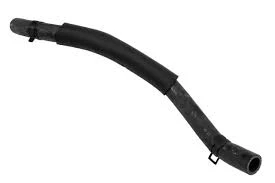car ac compressor pipe
Dec . 21, 2024 17:19 Back to list
car ac compressor pipe
Understanding Car AC Compressor Pipes Importance and Maintenance
The car’s air conditioning system is a marvel of engineering that provides comfort to passengers, especially during the hot summer months. One of the crucial components of this system is the AC compressor, which is responsible for circulating refrigerant throughout the air conditioning setup. However, an often overlooked aspect of this system is the compressor pipe—essential for managing the flow of refrigerant. In this article, we will explore the function of AC compressor pipes, common issues that arise, and maintenance tips to ensure a smoothly running air conditioning system.
What are AC Compressor Pipes?
AC compressor pipes, often referred to as refrigerant lines, are the tubes that connect the compressor to the various components of the air conditioning system, such as the evaporator and condenser. These pipes play a vital role in transporting refrigerant between the different elements, enabling the AC system to cool the air inside the vehicle efficiently.
In general, there are two main types of pipes in an automotive AC system high-pressure and low-pressure lines. The high-pressure line transmits refrigerant from the compressor to the condenser, while the low-pressure line carries the refrigerant from the evaporator back to the compressor. The difference in pressure between these two lines assists in the evaporation and condensation process, allowing the AC to function effectively.
Common Issues with AC Compressor Pipes
Like any component in a vehicle, AC compressor pipes can face issues that can lead to decreased efficiency or complete system failure. Here are some common problems
1. Leaks One of the most common issues with AC compressor pipes is the development of leaks. These can be caused by corrosion, vibrations, or physical damage. Leaks can lead to a loss of refrigerant, which severely impacts the cooling ability of the AC system.
2. Blockages Over time, debris and contaminants can accumulate in the pipes, causing blockages. This can lead to insufficient refrigerant flow, resulting in inadequate cooling performance.
3. Wear and Tear The harsh environment under the hood, including heat, vibrations, and exposure to chemicals, can cause wear and tear on the pipes. This deterioration can compromise their structural integrity and lead to failures.
car ac compressor pipe

4. Improper Installation If the AC system was not correctly installed, it could lead to misaligned pipes that may rub against other components of the vehicle. This can eventually cause abrasions and leaks.
Maintenance Tips
Maintaining your car’s AC compressor pipes is essential for ensuring optimal performance and longevity of the air conditioning system. Here are some maintenance tips
1. Regular Inspections During routine vehicle maintenance, have a technician inspect the AC system, including compressor pipes. Early detection of leaks or damage can save you costly repairs later.
2. Keep it Clean Ensure that the area around the AC compressor and pipes is free from dirt and debris. A clean environment helps prevent clogs and allows the system to operate efficiently.
3. Check Refrigerant Levels Monitor the refrigerant levels in your AC system. Low levels can indicate leaks in the compressor pipes that need immediate attention.
4. Use Quality Parts If any pipes need to be replaced, opt for high-quality, OEM (Original Equipment Manufacturer) parts to ensure compatibility and durability.
5. Professional Maintenance To avoid potential complications from DIY repairs, it’s advisable to seek professional help for any significant issues with your AC compressor pipes.
Conclusion
In conclusion, the car AC compressor pipes may seem like a small component of a larger system, but they play a vital role in ensuring effective and efficient air conditioning. Understanding their function, the common problems they face, and how to maintain them can help vehicle owners ensure a comfortable driving experience, even in hot weather. Regular maintenance and timely repairs can extend the lifespan of your air conditioning system and keep your vehicle cool when it matters most.
